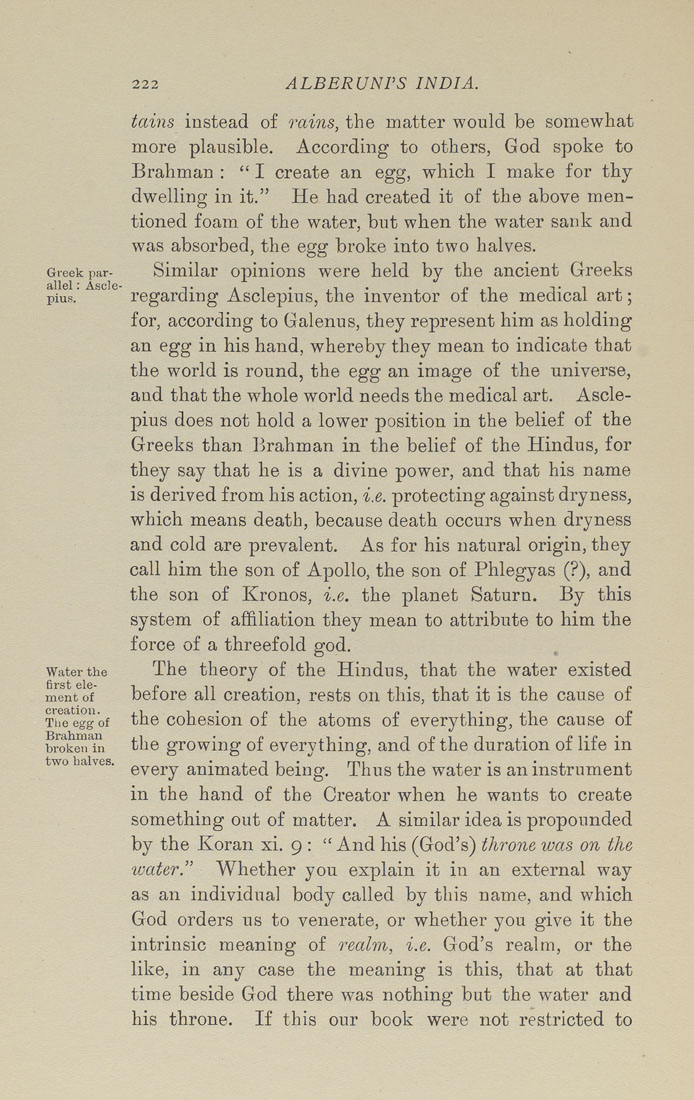Bīrūnī, Muḥammad ibn Aḥmad, Alberuni's India (v. 1)
(London : Kegan Paul, Trench, Trübner & Co., 1910.)
|
||
|
|
|
|
| Page 222 |

ALBERUNPS INDIA. Greek par¬ allel : Ascle¬ pius. Water the first ele¬ ment of creation. Tlie egg of Brahman broken in two halves. tains instead of rains, the matter would be somewhat more plausible. According to others, God spoke to Brahman : "I create an egg, which I make for thy dwelling in it." He had created it of the above men¬ tioned foam of the water, but when the water sank and was absorbed, the egg broke into two halves. Similar opinions were held by the ancient Greeks regarding Asclepius, the inventor of the medical art; for, according to Galenus, they represent him as holding an egg in his hand, whereby they mean to indicate that the world is round, the egg an image of the universe, and that the whole world needs the medical art. Ascle¬ pius does not hold a lower position in the belief of the Greeks than Brahman in the belief of the Hindus, for they say that he is a divine power, and that his name is derived from his action, i.e. protecting against dryness, which means death, because death occurs when dryness and cold are prevalent. As for his natural origin, they call him the son of Apollo, the son of Phlegyas (?), and the son of Kronos, i.e. the planet Saturn. By this system of affiliation they mean to attribute to him the force of a threefold god. The theory of the Hindus, that the water existed before all creation, rests on this, that it is the cause of the cohesion of the atoms of everything, the cause of the growing of everything, and of the duration of life in every animated being. Thus the water is an instrument in the hand of the Creator when he wants to create something out of matter. A similar idea is propounded by the Koran xi. 9 : " And his (God's) throne was on the lucder." Whether you explain it in an external way as an individual body called by this name, and which God orders us to venerate, or whether you give it the intrinsic meaning of realm, i.e. God's realm, or the like, in any case the meaning is this, that at that time beside God there was nothing but the water and his throne. If this our book were not restricted to |
| Page 222 |







